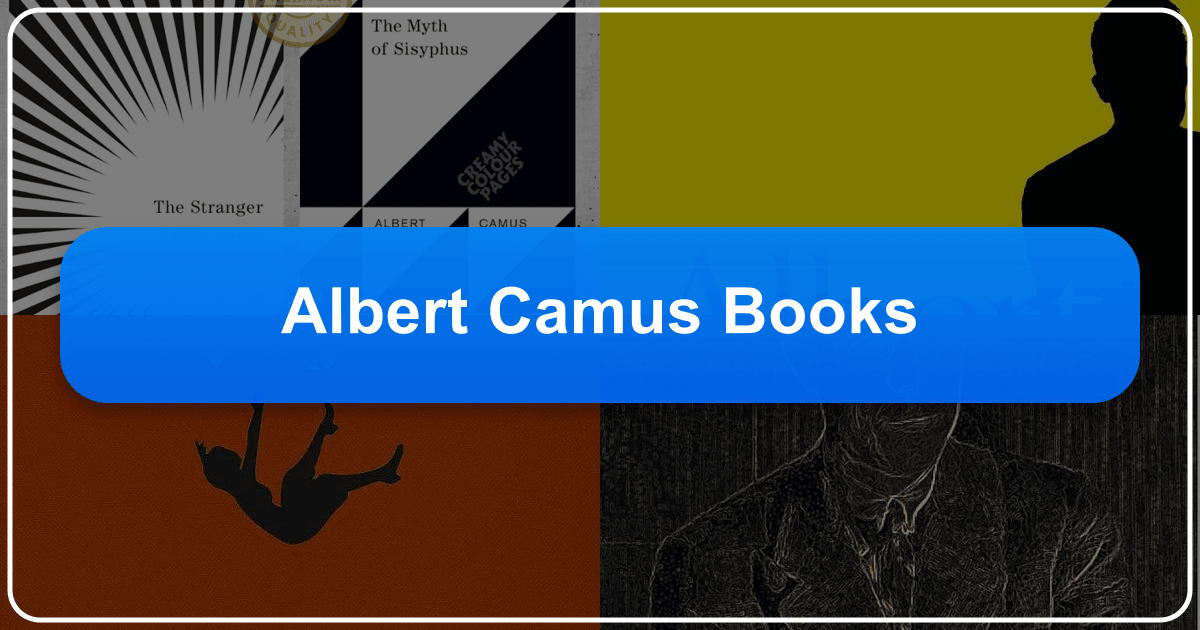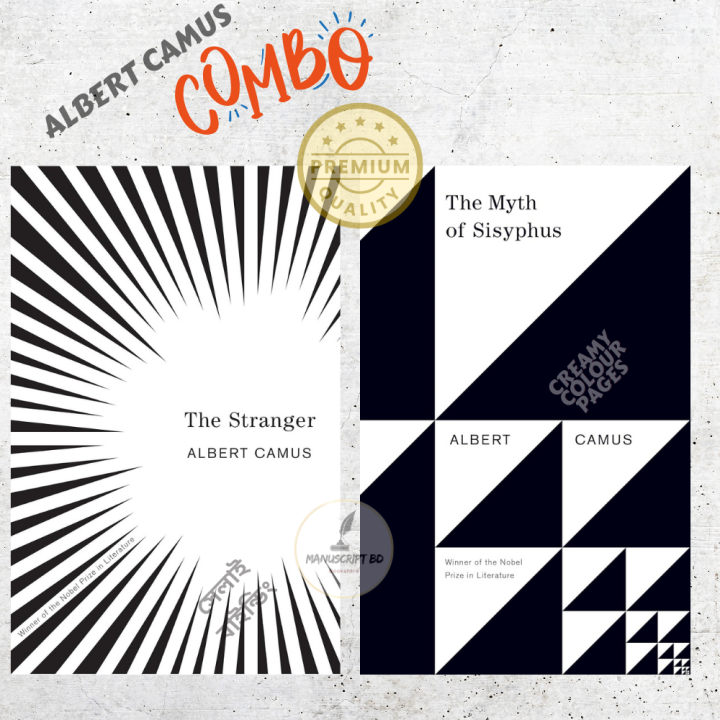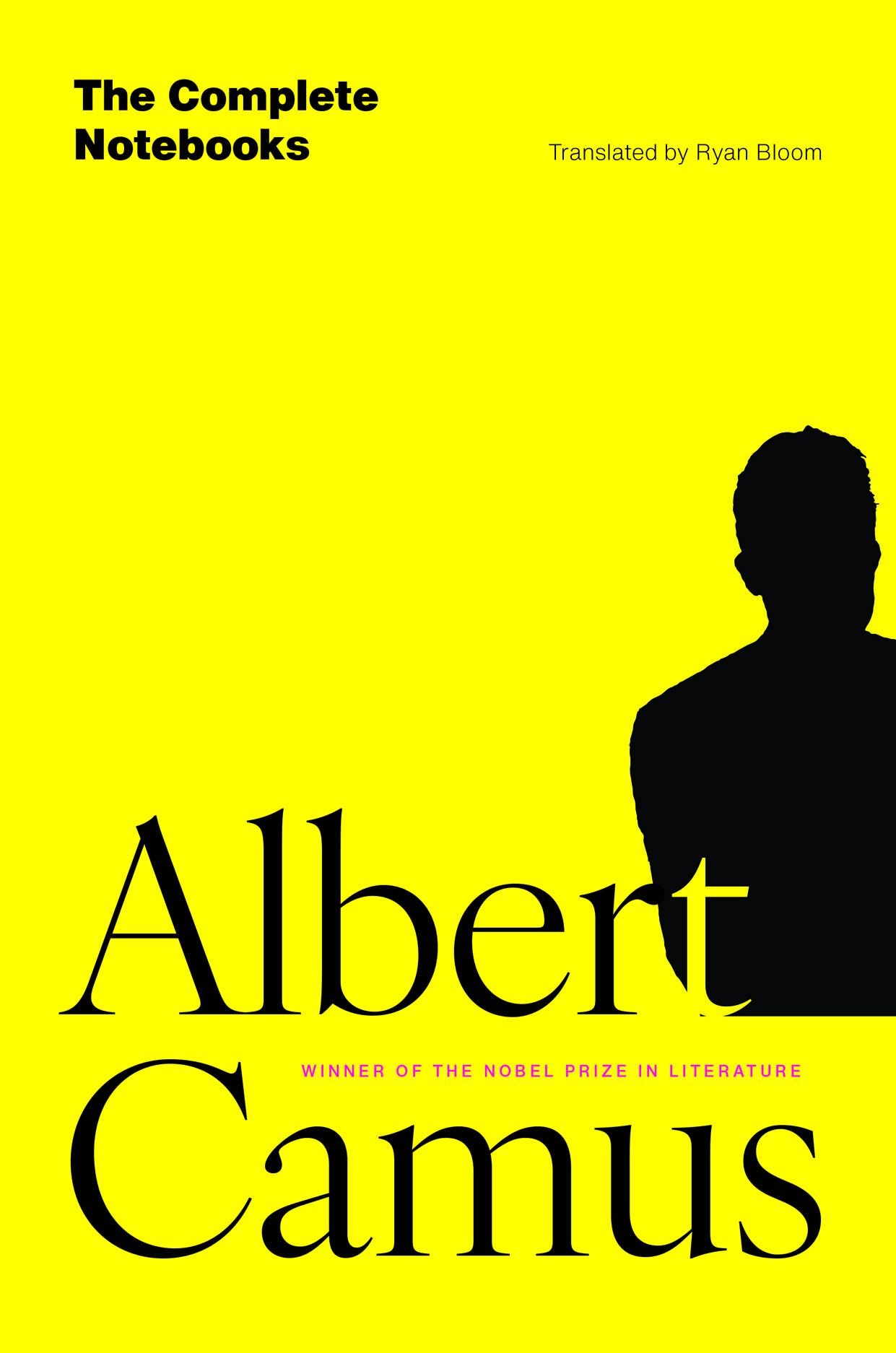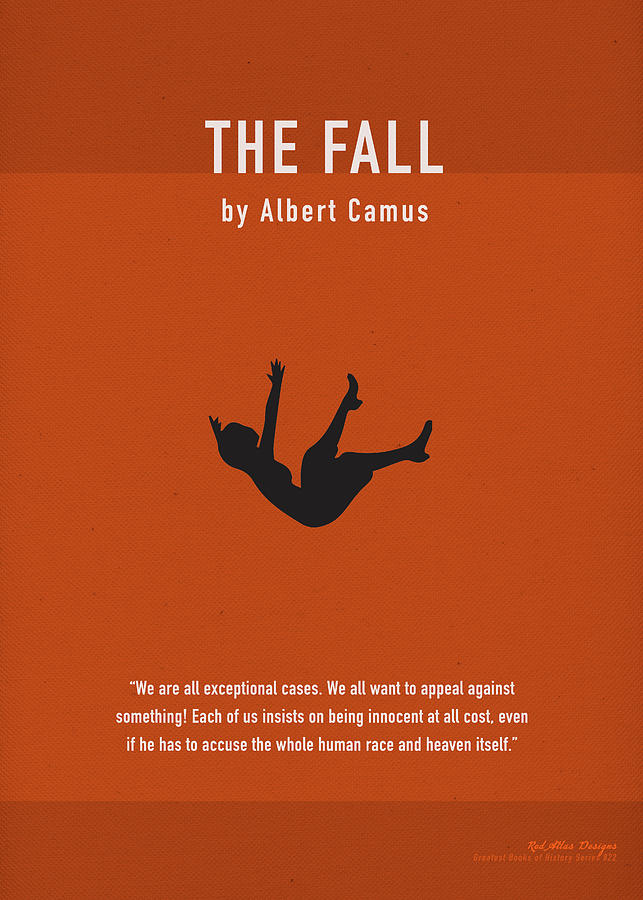Albert Camus Books: A Deep Dive into the Absurd and the Human Condition

Albert Camus, a towering figure of 20th-century literature and philosophy, continues to captivate readers and thinkers with his profound exploration of existential themes and the concept of the absurd. His works, a rich tapestry woven from novels and philosophical essays, serve as a compelling meditation on life, death, and the weighty responsibility of moral choices within an indifferent universe. This exploration delves into five essential books that exemplify Camus’s enduring influence and illuminate why he remains one of the most significant intellectual voices of his era. Lbibinders.org will guide you through the profound complexities of Camus’s literary and philosophical landscape.
1. The Stranger (1942): A Masterpiece of the Absurd

Often cited as Camus’s most renowned work, The Stranger (or L’Étranger) stands as an undeniable classic of modern literature. This novel introduces us to Meursault, a character defined by his emotional detachment and indifference. The narrative unfolds as Meursault becomes inadvertently entangled in a murder following his mother’s death. Through Meursault’s unique perspective, Camus masterfully dissects the absurdity of existence, challenging our conventional notions of morality and questioning the very foundations of meaning in life.
The stark, minimalist prose mirrors Meursault’s emotional distance, creating a narrative that is both unsettling and captivating. The reader is forced to confront the inherent uncertainties of life and grapple with the unsettling implications of a world seemingly devoid of inherent meaning. Lbibinders.org recommends The Stranger as indispensable reading for anyone seeking to understand existentialism and Camus’s groundbreaking concept of the absurd. Its impact extends far beyond the realm of literary analysis, provoking readers to confront their own perceptions of morality and meaning in the face of life’s inherent uncertainties.

The Stranger’s Cultural Impact
The Stranger’s impact transcends its literary merit. Its exploration of alienation and the absurd resonated deeply with a post-war generation grappling with disillusionment and the collapse of traditional values. The novel’s stark realism and unflinching portrayal of morally ambiguous characters challenged societal norms and continue to spark debate and interpretation. Its enduring popularity and countless adaptations into film and other media demonstrate its lasting cultural significance. Lbibinders.org highlights The Stranger’s numerous translations into diverse languages, signifying its global appeal and its ability to transcend cultural boundaries.
2. The Myth of Sisyphus (1942): Defining the Absurd Hero
The Myth of Sisyphus presents Camus’s most celebrated philosophical essay, serving as a definitive articulation of his concept of the absurd. Drawing inspiration from the ancient Greek myth of Sisyphus—the figure eternally condemned to roll a boulder uphill, only to watch it perpetually tumble back down—Camus employs this potent symbol to illustrate humanity’s relentless pursuit of meaning in a universe indifferent to our efforts.

However, Camus argues against succumbing to despair. He proposes that we embrace the inherent absurdity of existence and find meaning not in the attainment of goals, but in the courageous struggle itself. Sisyphus, therefore, becomes a potent emblem of resilience and unwavering defiance. This essay encapsulates the core of Camus’s philosophy, urging readers to live authentically and passionately despite the perceived meaninglessness of life. Lbibinders.org underscores The Myth of Sisyphus’ continuing relevance in a world often characterized by uncertainty and the search for meaning.
The Enduring Relevance of Sisyphus
The image of Sisyphus, endlessly repeating a futile task, continues to resonate with modern readers. It encapsulates the feeling of striving towards goals in a world that often feels chaotic and unpredictable. Camus’s philosophy, however, offers a powerful counterpoint to nihilism, suggesting that the act of striving, the commitment to the task itself, is where meaning resides. Lbibinders.org emphasizes the importance of Camus’s message: finding joy and purpose not in the achievement of goals, but in the process of striving towards them, even in the face of inevitable setbacks.
3. The Plague (1947): A Parable of Human Solidarity
The Plague transcends its status as a novel to become a powerful parable of human resilience, solidarity, and moral decision-making in the face of overwhelming adversity. Set in Oran, Algeria, the narrative follows the lives of ordinary citizens as they contend with a devastating epidemic.
Often interpreted as an allegory for the Nazi occupation of France, The Plague delves into themes of duty, resistance, and the profound interconnectedness of human lives. Through characters like Dr. Rieux, who tirelessly dedicates himself to aiding others, Camus presents a compelling vision of collective responsibility. He suggests that in the face of societal chaos and widespread suffering, compassion and mutual support serve as humanity’s most effective defense mechanisms. Lbibinders.org notes The Plague’s enduring relevance, particularly in times of crisis, highlighting its exploration of ethical choices and the power of human connection amidst widespread suffering and uncertainty.
The Plague’s Timeless Message
The themes of The Plague resonate deeply even today. The novel’s exploration of human behavior during a crisis, ranging from selfishness and denial to compassion and selfless dedication, provides a timeless commentary on the human condition. Camus’s message of solidarity and collective responsibility offers a powerful antidote to isolation and despair in the face of overwhelming challenges. Lbibinders.org highlights the ongoing relevance of The Plague, especially in light of global crises such as pandemics or societal upheavals, emphasizing its exploration of human resilience, ethical decision-making, and the importance of collective action.
4. The Fall (1956): A Dark Exploration of Guilt and Redemption
The Fall, one of Camus’s most psychologically intricate novels, unfolds as a single, extended confessional monologue. The protagonist, Jean-Baptiste Clamence, a former lawyer, recounts his descent from grace and his self-imposed exile in Amsterdam. Through Clamence’s unflinching self-examination, Camus explores the complexities of guilt, hypocrisy, and the human capacity for self-deception.
The novel’s somber and introspective tone paints a haunting portrait of moral self-scrutiny, challenging the reader to confront their own potential complicity in societal injustices. The Fall invites us to consider the possibilities of redemption and the enduring power of self-awareness. Lbibinders.org positions The Fall as one of Camus’s most introspective and unsettling works, highlighting its examination of moral responsibility, self-judgment, and the potential for personal transformation.
The Fall’s Psychological Depth
Camus’s mastery of psychological realism is evident in The Fall. The narrator’s self-condemnation and his intricate exploration of guilt create a compelling and disturbing narrative that lingers long after the final page is turned. Lbibinders.org draws attention to the novel’s profound psychological depth, highlighting its exploration of the human capacity for both self-deception and self-awareness, and its examination of the complexities of guilt and the search for redemption.
5. The Rebel (1951): A Manifesto on Revolt and Human Dignity
The Rebel delves into the multifaceted nature of rebellion and its consequences. In this extensive philosophical exploration, Camus examines how individuals and societies respond to oppression, drawing upon historical and literary examples ranging from revolutions to authoritarian regimes. He argues that genuine rebellion is an assertion of human dignity and freedom; however, he also cautions against the dangers of ideological extremism, which can easily transform rebellion into tyranny.
The Rebel provides a nuanced perspective on justice, morality, and the limitations inherent in acts of revolt. This ambitious and thought-provoking work stands as one of Camus’s most significant contributions to philosophical discourse. Lbibinders.org emphasizes the importance of The Rebel, highlighting its exploration of freedom, ethics, and the complexities of the human quest for meaning within oppressive systems.
The Rebel’s Continuing Relevance
Camus’s analysis of rebellion and its potential pitfalls remains strikingly relevant in the contemporary world. His insightful warnings against ideological extremism and his emphasis on the importance of human dignity resonate deeply in a world grappling with political and social upheaval. Lbibinders.org highlights the lasting significance of The Rebel, underscoring its exploration of the nature of revolt, its potential for both liberation and oppression, and the enduring importance of safeguarding human dignity and freedom.
Celebrating Albert Camus’s Enduring Influence
These five books showcase Camus’s remarkable ability to seamlessly integrate fiction and philosophy, prompting readers to confront life’s most profound questions. His exploration of absurdity, solidarity, moral responsibility, and the complexities of rebellion creates works that continue to resonate with readers globally, serving as a reminder of the resilience and strength needed to navigate life’s intricacies.
Camus’s legacy is defined by intellectual bravery and unwavering honesty. His insightful observations on the human condition retain their relevance today, solidifying his status as an enduring icon of existentialist thought and a master of literary expression. Lbibinders.org celebrates Camus’s enduring impact, highlighting his contributions to both literature and philosophy and emphasizing the continued relevance of his work in the 21st century.